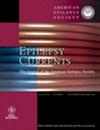人工智能:癫痫的基础知识和突破性应用
IF 6.3
2区 医学
Q1 CLINICAL NEUROLOGY
引用次数: 0
摘要
人工智能、机器学习和深度学习正越来越多地应用于所有医学领域,包括癫痫研究和临床护理。在癫痫病学的临床和研究领域,已经有了尖端的应用成果。由于需要传播有关这些方法、如何使用这些方法、它们的优势和潜在局限性的知识,2023 年梅里特-普特南研讨会和本研讨会综述的目标是介绍这些方法的背景和技术现状,然后通过以下内容得出这些方法当前和未来应用的结论:(1) 首先解释人工智能、机器学习和深度学习的基本原理。Wesley Kerr 博士在本综述的第一部分介绍了这些原理。(2) 深入探讨它们在神经器官组织中筛选药物的前沿应用,特别是癫痫。Sandra Acosta 博士将对此进行介绍。(3) 深入探讨人工智能方法如何预测药物治疗的临床反应。Patrick Kwan 博士将对此进行介绍。(4) 最后,由 Gregory Worrell 博士介绍在重症监护、癫痫监测单元和颅内监测情况下检测和分析脑电信号的不断扩展应用。我们期望,在未来十年及以后,上述方法的日益广泛应用将改变癫痫研究和护理,补充而不是取代癫痫临床医生和研究人员的辛勤工作。本文章由计算机程序翻译,如有差异,请以英文原文为准。
Artificial Intelligence: Fundamentals and Breakthrough Applications in Epilepsy
Artificial intelligence, machine learning, and deep learning are increasingly being used in all medical fields including for epilepsy research and clinical care. Already there have been resultant cutting-edge applications in both the clinical and research arenas of epileptology. Because there is a need to disseminate knowledge about these approaches, how to use them, their advantages, and their potential limitations, the goal of the 2023 Merritt-Putnam Symposium and of this synopsis review of that symposium has been to present the background and state of the art and then to draw conclusions on current and future applications of these approaches through the following: (1) Initially provide an explanation of the fundamental principles of artificial intelligence, machine learning, and deep learning. These are presented in the first section of this review by Dr Wesley Kerr. (2) Provide insights into their cutting-edge applications in screening for medications in neural organoids, in general, and for epilepsy in particular. These are presented by Dr Sandra Acosta. (3) Provide insights into how artificial intelligence approaches can predict clinical response to medication treatments. These are presented by Dr Patrick Kwan. (4) Finally, provide insights into the expanding applications to the detection and analysis of EEG signals in intensive care, epilepsy monitoring unit, and intracranial monitoring situations, as presented below by Dr Gregory Worrell. The expectation is that, in the coming decade and beyond, the increasing use of the above approaches will transform epilepsy research and care and supplement, but not replace, the diligent work of epilepsy clinicians and researchers.
求助全文
通过发布文献求助,成功后即可免费获取论文全文。
去求助
来源期刊

Epilepsy Currents
CLINICAL NEUROLOGY-
CiteScore
2.40
自引率
5.60%
发文量
88
审稿时长
>12 weeks
期刊介绍:
Epilepsy Currents is an open access, bi-monthly current-awareness journal providing reviews, commentaries and abstracts from the world’s literature on the research and treatment of epilepsy. Epilepsy Currents surveys and comments on all important research and developments in a format that is easy to read and reference. Each issue is divided into two main sections: Basic Science and Clinical Science. An outstanding Editorial Board reviews the literature and assigns topics and articles to world experts for comment. In addition, the Editors commission authoritative review articles on important subjects.
 求助内容:
求助内容: 应助结果提醒方式:
应助结果提醒方式:


